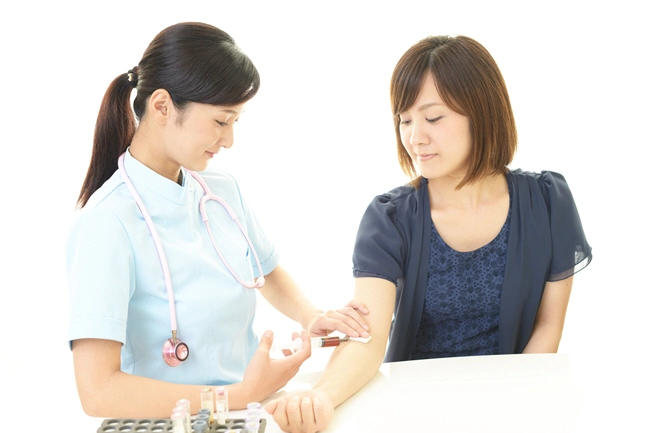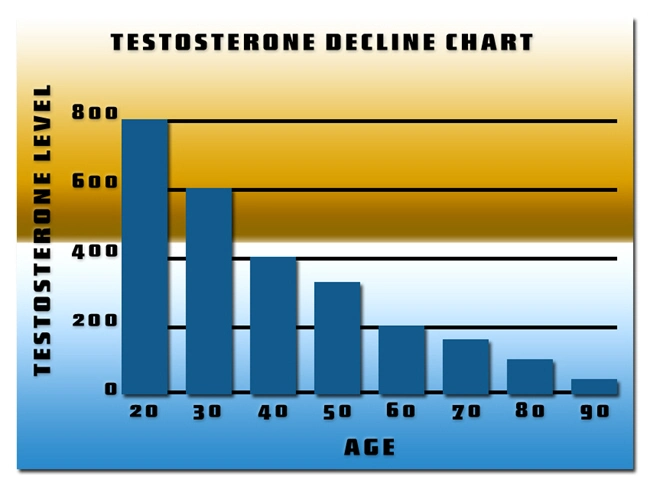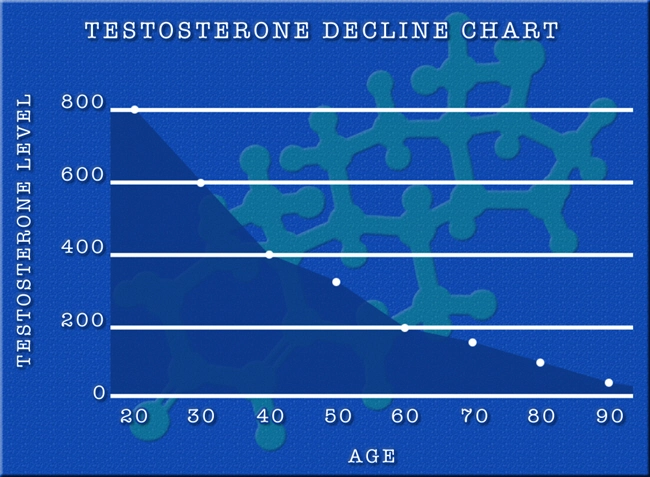
At our clinic, we are proud to offer the most effective, cutting-edge, safe, and affordable Testosterone Replacement Therapy (TRT) treatments that will deliver impactful results. By following our treatment protocols your body will respond with the kind of skyrocketing energy that you haven't felt in years!
But that's not all we do. WE believe in a holistic approach to health and longevity, and that includes stress reduction, nutrition, supplements, tips on obtaining deep, restorative sleep, and physical fitness. The right fitness routine will work synergistically with our testosterone therapy to deliver even more results!
If you’re a man with low testosterone (“Low-T”), exercise may be your salvation. The Exercise Impact On Testosterone
Physicians, research scientists, bodybuilders, and fitness professionals still have a lot to learn about training and its effects on testosterone. It's not anywhere near as simple as it sounds, and many factors besides your workout are involved.
Video Link: https://vimeo.com/262599890
Video Download: Click Here To Download Video
Video Stream: Click Here To Stream Video
But there is One Thing That Everyone Agrees On
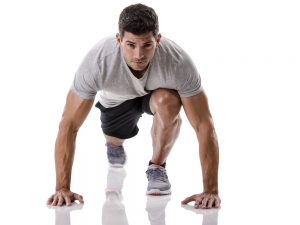 Get off the couch! You need to stop merely thinking about it and get moving.
Get off the couch! You need to stop merely thinking about it and get moving.
If you make exercise a habit, you will find exercise's impact on testosterone is real.
You will get the benefits.
However, if your efforts are sporadic, and you just go through the motions once in a while, you won't get the benefits.
It's that simple. Immediately after working out, testosterone levels rise, but for only a brief period.
"Sometimes it’s 15 minutes after exercise that testosterone is elevated. Sometimes it can be up to an hour,” says Todd Schroeder, Ph.D., who studies exercise and hormones in older men at the University of Southern California. It's not yet clear what health effects if any, these temporary boosts may have. Of course, exercise has many other well-known health benefits.
For men who have low testosterone, exercise alone probably won’t raise their levels enough to make a difference in how they feel, says endocrinologist Scott Isaacs, MD, of Emory University. But he says that for men whose testosterone level is on the borderline between normal and low, “I think it’s going to have a much more potent effect.”
Four Factors That Matter - Exercise Impact On Testosterone
Your weight, age, fitness level, and the timing of your workout all matter.
1. Your weight: Isaacs treats men with low testosterone. He, a long with virtually all of the medical professionals that offer the same treatment, sees obesity as a big part of the problem. If you’re overweight, exercise can improve your testosterone levels by helping you shed pounds, says Isaacs, the author of Hormonal Balance: How to Lose Weight By Understanding Your Hormones and Metabolism.
as a big part of the problem. If you’re overweight, exercise can improve your testosterone levels by helping you shed pounds, says Isaacs, the author of Hormonal Balance: How to Lose Weight By Understanding Your Hormones and Metabolism.
2. Your age: Older men seem to get less of a post-exercise boost in testosterone, Schroeder says. However, this needs more research. What we do know with absolute certainty is that beginning around age 30, a man's testosterone level begins to drop, at a rate of approximately 1% annually, or 10% per decade. However, exercise can help to ward off the debilitating effects of lowered testosterone such as strengthening both bones and muscles, improving balance, preventing ugly, disease-ridden gooey fat from gaining a foothold, and slowing or stopping the mental decline and its accompanying “brain fog.”
3. When you exercise: Your testosterone levels vary throughout the day. Levels are typically highest in the morning and lowest in the afternoon. Research has found that strength-training workouts may have a more significant effect on testosterone in the evening. As a result, the brief boost from your exercise session might be even higher if you schedule it after work instead of early in the morning, Isaacs says. But never forget an old bodybuilding axiom: anytime is better than no time!
4. Your current fitness level: Not in great shape? If you make the commitment and get moving, you may get a more significant, though still brief, boost in testosterone than a man who's already in good shape. However, after a few short weeks, your body will adapt to the added stress you are placing on it. The result? A lower hormone response from the same workout, Schroeder says.
The Good News: All Types of Exercise Count
Endurance training and resistance training (such as weightlifting, working out with bands, and performing body-weight calisthenics like push-ups and pull-ups) both boost testosterone levels, Schroeder says. 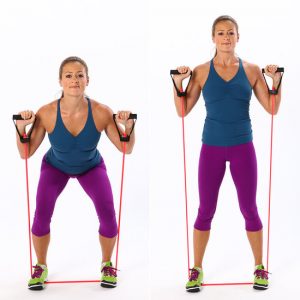 Lifting weights or doing other strength-training workouts has a more significant effect on your testosterone, Schroeder says.
Lifting weights or doing other strength-training workouts has a more significant effect on your testosterone, Schroeder says.
He says the following strategies will give you an even more significant boost in testosterone from your strength training workouts, which is backed up by research...
- Total-body workouts. Use more muscles. (For instance, a full-body workout with compound movements like squats, bench presses, or deadlifts will affect testosterone more than doing an isolation exercise, such as bicep curls.)
- Cut down the reps and add the iron plates. Lift heavier weights rather than doing many reps of lighter weights.
- Crank up the intensity. Strive for shorter rest periods during your workout. The goal is never to wait more than one minute between sets, and if you can attack the weights after a brief 30-second pause, so much the better. However, always use the correct form, so find your best tempo. Just try to keep it as short as safely possible.
The takeaway is this: build an overall exercise routine that includes resistance, cardio, and flexibility training, so you're helping your overall health. But don't overdo it. Elite athletes (and amateurs who over-train), can see a drop in their testosterone level, which is a sign that they’re harming their bodies.
When this unfortunate scenario rears its ugly head, your testosterone level suffers a precipitous drop, and your level of cortisol, a stress hormone, skyrockets, Schroeder says. He notes that a rise in cortisol can be linked to a fall in testosterone. How do you know if you are over-training? Here are a few symptoms:
- Excessive soreness. There is a phenomenon known as Delayed Onset Muscle Soreness (DOMS). This is also called muscle fever and is the pain and stiffness felt in muscles several hours to days after unaccustomed or strenuous exercise. This is usually nothing serious. But if soreness persists, consider taking a break and reviewing your exercise selection.
- Fatigue and trouble recovering from workouts. Naturally, you may feel wiped out and drained after an intense workout. But if the fatigue continues, and you feel your enthusiasm waning, again, take a break for a few days or even a week to recharge your batteries.
- Insomnia (trouble getting to sleep and staying asleep). Lack of deep, restorative sleep is detrimental to your overall health in many ways...including the
 lowering of your testosterone levels.
lowering of your testosterone levels. - Slowing down and getting weaker. This is a gigantic red flag. If you are anticipating your workout sessions with an impending sense of dread, listen to your body. Back off, and recharge.
Always remember to give yourself sufficient rest between workouts, and eat clean and healthy to help your body recover from workouts.
Contact us for a FREE, no-obligation discussion about the benefits of testosterone restoration.
Reference
Contact Us Today For A Free Consultation
Dear Patient,
Once you have completing the above contact form, for security purposes and confirmation, please confirm your information by calling us.
Please call now: 1-800-380-5339.
Welcoming You To Our Clinic, Professor Tom Henderson.

- No Gym since COVID-19? No Problem! [Last Updated On: September 8th, 2025] [Originally Added On: January 12th, 2021]
- Video - Growth Hormone Builds Muscle and Burns Fat! [Last Updated On: March 5th, 2025] [Originally Added On: October 12th, 2021]
- Growth Hormone and Fitness [Last Updated On: February 15th, 2025] [Originally Added On: October 12th, 2021]
- Growth Hormone and Creatine [Last Updated On: February 15th, 2025] [Originally Added On: October 12th, 2021]
- Growth Hormone boosts Metabolism! [Last Updated On: February 13th, 2025] [Originally Added On: October 12th, 2021]
- Testosterone and Muscle Building [Last Updated On: February 13th, 2025] [Originally Added On: October 12th, 2021]
- Testosterone and Running [Last Updated On: February 14th, 2025] [Originally Added On: October 27th, 2021]
- HGH and Physical Fitness [Last Updated On: February 12th, 2025] [Originally Added On: October 28th, 2021]
- Boost HGH with Squats! [Last Updated On: February 15th, 2025] [Originally Added On: October 28th, 2021]
- Blood Flow Restriction Training [Last Updated On: October 9th, 2025] [Originally Added On: December 1st, 2021]
- The Skinny on How Hormones Affect Your Weight [Last Updated On: June 8th, 2025] [Originally Added On: February 19th, 2023]
- Unlocking the Power of Your Potential: A Sleek and Healthy Approach to Human Growth Hormone and Fitness [Last Updated On: February 15th, 2025] [Originally Added On: February 15th, 2025]
- Unwrapping the Powers of Creatine - A Brain and Brawn Booster! [Last Updated On: February 15th, 2025] [Originally Added On: February 15th, 2025]
